Poland and Baltic States
First Baltic gas pipeline without Russia.
15 Oct 2015Poland has signed a deal to build the first gas pipeline connecting the Baltic states to the EU energy market. The pipeline will integrate EU and Baltic energy markets and reduce dependence on Russian gas.
The 558 million euro ($636 million) gas pipeline will end the energy isolation of the Baltic countries by connecting the gas markets of Poland and Lithuania, the European Commission said
“Today we have done much more than bringing the energy isolation of the Baltic States to an end. We have brought the region further together,” European Commission President Jean-Claude Juncker said. “We are launching a project that will allow us to overcome historic limitations, including the direction of gas supplies from East to West,” PM Kopacz told a press conference.
The 534-kilometer (332-mile) Gas Interconnector Poland-Lithuania (GIPL) will be backed by a 305 million euro investment from the European Commission, which has set out the goal of creating an integrated European gas market and ensuring members have multiple supplies of energy. Once the GIPL is built, it will connect the Lithuanian, Estonian and Latvian gas network with the EU. The pipeline is scheduled to be completed by December 2019.
Earlier this week, PM Ewa Kopacz opened a liquefied natural gas terminal at the Baltic port of Świnoujście, northern Poland, which is yet another move expected to improve the energy independence of the country. The first shipment of LNG is expected to arrive from Qatar in December
L’Unione europea è nata per non essere potenza o soggetto geopolitico, ma uno spazio di democrazia e di economia di mercato con una valuta comune, in cui lo Stato di diritto e la difesa dei diritti umani siano garantiti a tutti. Questa l’idea dei “padri fondatori”.
Le crisi, importate dal 2007, stanno evidenziando la lontananza tra le teorie filosofiche e la dura realtà.
Ad esempio, per salvare l’euro si è intervenuti con politiche monetarie non convenzionali, fondi salva Stati concordati in notte insonni. E’ stata pure creata una sorta di unione bancaria per una futura comune politica fiscale.
Adesso, per risolvere il problema dei profughi, cosa ci si inventerà? Le poche centinaia di migliaia di disperati siriani, presenti sul territorio comunitario, sono soltanto l’avanguardia delle 11 milioni di persone, che hanno abbandonato le loro case dal 2011 ad oggi. 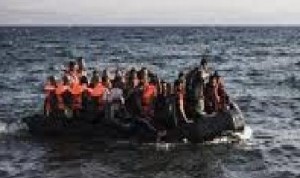
Barack Obama è stato eletto dagli americani per concludere le guerre e rimettere in ordine le casse dello Stato. Con la rivoluzione energetica Washington non ha più necessità di vegliare sulle rotte delle materie prime. Da qui anche il suo “non interventismo” in Medio Oriente ed Africa.
Gli europei non hanno capito che è finita l’epoca in cui l’alleato Usa toglieva le castagne dal fuoco. Il vuoto, creatosi nel bacino sud-orientale del Mediterraneo, è stato colmato dagli arabi del Golfo e dall’Isis.
Sorge spontanea una domanda: dov’è l’Unione europea in presenza di crisi gravissime? La politica estera comunitaria appare ancora spuntata, tanto che, mentre Berlino e Parigi sono presenti al tavolo sul conflitto ucraino, solamente britannici e francesi tentano di tenere alta la bandiera fuori dal Vecchio continente.
Non devono stupire le reazioni dei neo europei, quelli orientali, verso i migranti: stanno venendo a galla le contraddizioni dell’allargamento Ue ad Est del 2004, quando la “Casa europea” è diventata un condominio.
Questi popoli, ex “sudditi” del Cremlino, sono fuggiti allora da una pesante situazione geopolitica. Come non dare loro oggi torto alla luce dei tragici recenti avvenimenti ucraini? Questa gente condivide solo in parte certi valori.
Il fallimento delle “primavere” arabe con la mancata esportazione della democrazia, l’instabilità nello spazio ex sovietico e l’incognita cinese sono durissimi banchi di prova.
Se non si vogliono i rifugiati in casa propria bisogna fermare la guerra e l’anarchia, anche sporcandosi le mani. Se si intende limitare l’arrivo di migranti economici è necessario varare politiche di assistenza nei Paesi più poveri. La lezione di questi giorni è una: lo status quo e la paralisi, con interminabili summit, mettono in pericolo la comune coabitazione europea.
gda
Poland, a wider referendum.
27 Jun 2015The popular vote was proposed by outgoing head of state Bronisław Komorowski, following the first round of the presidential election on 10 May.
The referendum will ask three questions, on political funding, changes in the voting system and the principles governing tax law.
During a press conference, PM Kopacz said that PiS did not originally want the referendum. Now PiS deputy leader Beata Szydło has said that the party wants to widen the scope of the referendum slated for 6 September.
PiS proposes to add questions about lower the retirement age, the minimum schooling age (currently six years in Poland) and the limiting the selling of state-owned forests.
Beata Szydło was nominated by party leader Jarosław Kaczyński as the candidate for the post of Prime Minister in the autumn general election.
Material from Radio Polska.
EuroLithuania!
1 Jan 2015Lithuania is the 19th European state to adopt the continental currency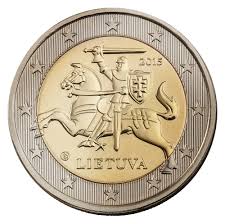 .
.
The euro gives the country more freedom in negotiating business with Russia, said Valdas Adamkus, who was president of Lithuania for about a decade until 2009. It provides an extra measure of geopolitical security.
At 0.4 percent, its inflation rate is just a hair above the euro zone average of 0.3 percent, and its 9.5 percent unemployment rate is right in the middle of the pack, and comfortably below the zone average of 11.5 percent. Lithuania’s 1.3 percent real GDP growth rate beats both of its Baltic partners and is again well above the -2.2 percent Euro Zone average.
A party mainly backed by ethnic Russians won the largest number of votes in Latvia’s parliamentary elections this weekend, but is likely to be shut out of government after fears over a resurgent Kremlin dominated the campaign.
The Harmony party, led by the mayor of Riga, Nil Ushakov, won 23% of the votes in the elections, while the coalition of three current ruling parties had 56% between them.
At the last elections in 2011, the Harmony Centre Party won with 28 per cent of the vote, although it was kept out of a coalition government of ethnic Latvian parties. 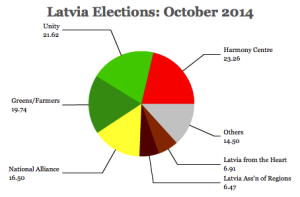
The annexation of Crimea in March has left the party in a delicate position. Many of its core supporters get their news from Russia, and as a result there is a strong pro-Moscow leaning. SKDS found that 36 per cent of the community supported Russia’s actions in Crimea. “Therefore they cannot criticise Russia even if it is obvious that Russia is supporting military actions [in Ukraine],” says Elizabete Krivcova of activist group Non-Citizens Congress, who also stood as a candidate for the Harmony Centre Party in May’s European Parliament elections.
The leftist Harmony party, allied with Russian President Vladimir Putin’s United Russia party, won only 24 of 100 seats, down from 31 in the outgoing assembly, full official results showed Sunday.
The three parties in Prime Minister Laimdota Straujuma‘s centre-right governing coalition secured a sound 61-seat majority, which could rise to 69 with a fourth party possibly joining in.
In the outgoing parliament formed after the last polls in 2011, a four-party coalition held 63 seats.
Under the constitution the new parliament will open on November 4.
Concern is running high over the impact that tit-for-tat sanctions between Moscow and Brussels over the Ukraine crisis could have on this tiny Baltic state, which is heavily reliant on trade with Russia.
Latvia made a spectacular recovery from the world’s deepest recession in 2008-09, when output shrank by nearly a quarter during the global financial crisis.
A painful austerity drive by a centre-right government then paved the way for entry into the eurozone in January.
The sacrifices paid off, and growth in Latvia topped the 28-member EU for a third consecutive year in 2013, with a 4.0 percent expansion.
“We Europeans must learn a lesson from the tragic Polish September, from the tragic years of the Second World War – tragic for all people without exception – that we cannot be naively optimistic. Today, looking at the tragedy of the Ukrainians, looking at the war – be1cause we need to use that word – we know that September 1939 cannot be allowed to be repeated” said Polish Prime Minister Donald Tusk. 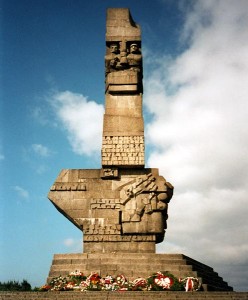
NATO member states will work towards “a new policy, whose main objective will be the security and effectiveness of our western community against the threat of war, not only in eastern Ukraine.”
It was on Gdansk’s small Westerplatte peninsula that the first shots of World War II were fired, with a small detachment of Polish soldiers attempting to withhold a siege from Nazi Germany.
Polish and German presidents Bronislaw Komorowski and Joachim Gauck met for the commemoration.
New EU appointments. The Gdansk wind.
31 Aug 2014The European Council has appointed Federica Mogherini as the next EU High Representative and Polish Prime Minister Donald Tusk as EU Council President.
“It’s nothing personal, but Belka should go,” Leszek Balcerowicz, a Polish finance minister between 1997 and 2000 and former central bank chief told the TVN24 news station.
Balcerowicz said that the secretly recorded conversation between Marek Belka and Interior Minister Bartlomiej Sienkiewicz, published by the Wprost magazine on Sunday, appeared to show “a violation of the neutrality of the National Bank of Poland in proposing a political deal with the ruling party”. 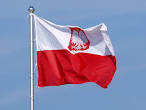
The transcripts of the recording appear to suggest that Minister Sienkiewicz asked the central bank governor to assist the government in reducing debt levels and stimulating the economy in the run up to the scheduled 2015 general election if the opposition Law and Justice (PiS) looked as if it might win the ballot.
Belka, in turn, called for the resignation of the then finance minister Jacek Rostowski, who was later sacked during a cabinet reshuffle four months after the conversation took place in a restaurant in Warsaw in July 2013.
“The central bank is an institution where good performance depends on public confidence. It takes time to build trust […] but it can be lost just as quickly,” Balcerowicz added.
PM Donald Tusk could call snap elections if a “crisis of confidence” worsens following release of illegally recorded tapes purportedly showing political collusion between central bank and government.
From Polskie Radio, PAP
The leader of the Crimean Tatars Mustafa Dzhemilev received the Solidarity Prize from Polish President Bronislaw Komorowski on the day the country marks 25 years since the end of communism. 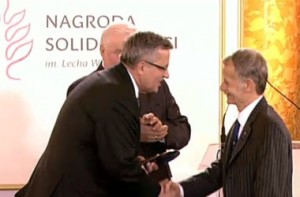
New Ukrainian President Petro Poroshenko, US secretary of State Kerry, Swedish minister of Foreign Affairs Bildt, former Polish President Lech Walesa took part at the ceremony.
Mustafa Dzhemilev was banned from entering Russian territory, including the recently annexed Crimea, after he condemned the March referendum.
On Monday evening Dzhemilev told Polish public television station TVP that the Crimean Tatars would continue to fight for their rights.
“We are not going to wage war against Russia, We have not shed anyone’s blood, We will fight for our rights with peaceful means.” he said.
Dzhemilev, like the vast majority of Crimean Tatars, was deported from his homeland in 1944, and he grew up in Uzbekistan, where he was involved in dissident activities. He returned to Crimea in 1989.
“For years, Mustafa Dzhemilev has been promoting democracy and civil rights and civil liberties in Ukraine, specifically among the Tatar community,” Foreign Minister Radoslaw Sikorski said.
“The people of Ukraine made a very good choice, I have known Petro Poroshenko for many years,” said Dzhemilev of the presidential elections of 25 May.
“He is a patriot, an honest man, even though a businessman. It is very important for me that he said that the most important matter is to free Crimea from the occupation. Without being released from the occupation, we cannot imagine how we will be able to live on,” he added.
From Polskie Radio, TVP
Mustafa Dzhemilev’s battle for Crimea – Deutsche Welle
Poland buried General Jaruzelski.
30 May 2014A eulogy to the life of Wojciech Jaruzelski was given by former Polish President (1995-2005) Aleksander Kwasniewski. He said about imposing martial law crackdown against the Solidarity movement in 1981 that “with sincere conviction at a moment of severe crisis the lesser of two evils: protecting us from either foreign intervention or a fraternal civil war”.
Lech Walesa, former chief of Solidarity Trade Union and then Polish president, took part at the ceremony and gave his condolences to the General’s family.
Jaruzelski, who died aged 90 on May 25th, rests in peace in Warsaw’s Pawazki Military Cemetery, the place of burial of many notable Poles.
Material from Polskie Radio and PAP
Welcome
We are a group of long experienced European journalists and intellectuals interested in international politics and culture. We would like to exchange our opinion on new Europe and Russia.
Categories
- Breaking News (11)
- CIS (129)
- Climate (2)
- Energy&Economy (115)
- EU Eastern Dimension (85)
- Euro 2012 – Sochi 2014 – World Cup 2018, Sport (43)
- Euro-Integration (135)
- History Culture (198)
- International Policy (261)
- Military (74)
- Interviews (18)
- Italy – Italia – Suisse (47)
- Odd Enough (10)
- Poland and Baltic States (126)
- Religion (31)
- Russia (421)
- Survey (4)
- Turning points (4)
- Ukraine (176)
- Российские страницы (113)
Archives
- November 2020
- October 2020
- September 2020
- August 2020
- July 2020
- May 2020
- April 2020
- March 2020
- January 2020
- December 2019
- November 2019
- October 2019
- September 2019
- August 2019
- July 2019
- June 2019
- May 2019
- April 2019
- March 2019
- February 2019
- December 2018
- November 2018
- October 2018
- September 2018
- August 2018
- July 2018
- June 2018
- May 2018
- April 2018
- March 2018
- February 2018
- January 2018
- December 2017
- November 2017
- October 2017
- September 2017
- August 2017
- July 2017
- May 2017
- March 2017
- January 2017
- December 2016
- November 2016
- October 2016
- September 2016
- July 2016
- June 2016
- May 2016
- April 2016
- February 2016
- January 2016
- November 2015
- October 2015
- September 2015
- June 2015
- April 2015
- March 2015
- February 2015
- January 2015
- December 2014
- November 2014
- October 2014
- September 2014
- August 2014
- July 2014
- June 2014
- May 2014
- April 2014
- March 2014
- February 2014
- January 2014
- December 2013
- November 2013
- October 2013
- September 2013
- August 2013
- July 2013
- June 2013
- May 2013
- April 2013
- March 2013
- February 2013
- January 2013
- December 2012
- November 2012
- October 2012
- September 2012
- August 2012
- July 2012
- June 2012
- May 2012
- April 2012
- March 2012
- February 2012
- January 2012
- December 2011
- November 2011
- October 2011
- September 2011
- August 2011
- July 2011
- June 2011
- May 2011
- April 2011
- March 2011
- February 2011
- January 2011
- December 2010
- November 2010
- October 2010
- September 2010
- August 2010
- July 2010
- June 2010
- May 2010
- April 2010
- March 2010
- February 2010
- January 2010
- December 2009
- November 2009
- October 2009
- September 2009
- August 2009
Our books




